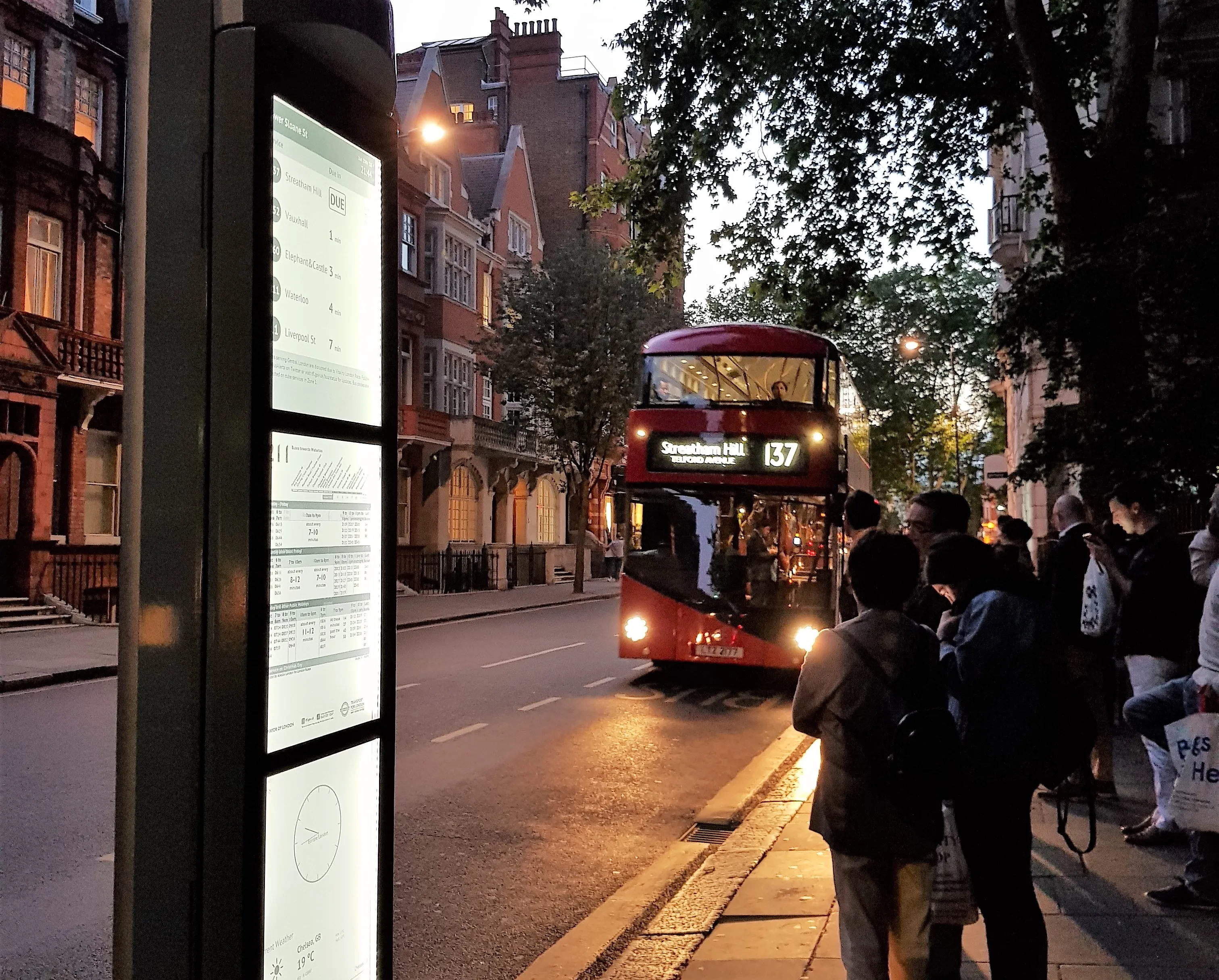
Simon Reed, Transport for London's (TfL) head of tech & data – surface transport, says: “We are continuously exploring new ways to deliver information to our customers using the most cost-effective technology available that meets our challenging operating environment that works effectively.”
The company says the trial - on Lower Sloane Street and Waterloo Bridge - has helped identify a viable digital display technology that can operate continuously at locations without mains power.
Papercast's e-paper bus stop displays deliver a low power consumption and can be installed within TfL bus stop timetable frame, the company adds.
The solution also comes with wireless capabilities as well as optional illumination, interactive function and text to speech modules.










